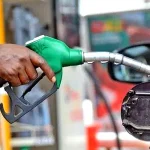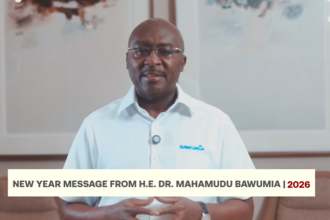The Institute for Energy Security (IES) is warning of an impending shortage of petroleum products across the country.
According to the energy policy institute, the shortage is imminent due to the rapidly falling Cedi, which is causing a scarcity of dollars and the erosion of some working capital of the Bulk Oil Distribution Companies (BDCs).
Nana Amoasi VII, the Executive Director of IES, said Ghanaians should be concerned about this situation.
“There is something to be much worried about, and that’s the likelihood of the shortage of the commodity on the market on the back of a reported shortage of dollars for the Bulk Oil Distribution Companies(BDCs), the importers and the erosion of working capital of some of these importers. The price of crude oil remains high, and the cedi value continues to decline”.
He said the think tank issued a similar warning early in the year, but stakeholders did not pay heed to it.
Nana Amoasi VII stressed that if the authorities fail to put the appropriate plans in place this time, the consequences will be dire.
“We first raised these concerns in March this year, and in the following month, there were reports of the pocket of shortages of fuel across the country”.
“This time around, any incident of shortage may be widespread if we fail to plan against it. It is more serious”, he cautioned.
He added that the BDCs and importers are struggling to bring refined crude oil into the country.
Meanwhile, prices of petroleum products have shot up by a 12.8 per cent in the latest review of petroleum prices that took off from October 16, 2022.
Petrol per litre is going for ¢13.10, from the previous price of ¢11.10, representing about a 16% increase.
On the other hand, diesel per litre has shot up to about ¢15.99, from the previous price of ¢13.90, while the price of Liquefied Petroleum Gas (LPG) has gone up about 10%.
The increments are occasioned by the slight increase in the price of crude oil on the world market during the period and the sharp depreciation of the Ghanaian currency, the cedi.
Duncan Amoah, Executive Secretary of the Chamber of Petroleum Consumers Ghana (COPEC), has stressed that the rate could hit GH¢18 a litre by December if the government does not intervene.
“We are hitting Gh¢15 per litre for diesel now. The cedi has definitely not come to a stability point, and if it continues to depreciate it is likely that in the first week of November, there will be a further increment. Between now and December, you’re probably going to see that Ghanaians could end up paying about GH¢17 to GH¢18 per litre for fuel.”
What can be done to address the situation?
The COPEC-Ghana Executive Secretary told The Ghana Report, “We have a local refinery that we could have leveraged to get some fuel security at lower prices, but unfortunately, we don’t think there is a political will to refurbish the Tema Oil Refinery”.
Mr Amoah observed a fully functional refinery would cut the logistical cost, which adds to the price build-up by exporting crude to Europe to be refined before importing back to Ghana.
“They need to get TOR back on stream, and the need for political interference to be stopped holds the key for all for us,” he underscored.
Additionally, he cited the Bulk Oil Storage and Transportation Company Limited’s (BOST) failure in executing its mandate.
Mr Amoah explained that BOST is supposed to store huge volumes of fuel and release to the market to level prices and check shortages “without overstretching the already burdened Ghanaian taxpayer”.
However, “we do not see that function of BOST, and they are now focusing on trading…which was not the purpose of the BOST Act but to hold strategic stock”.
















